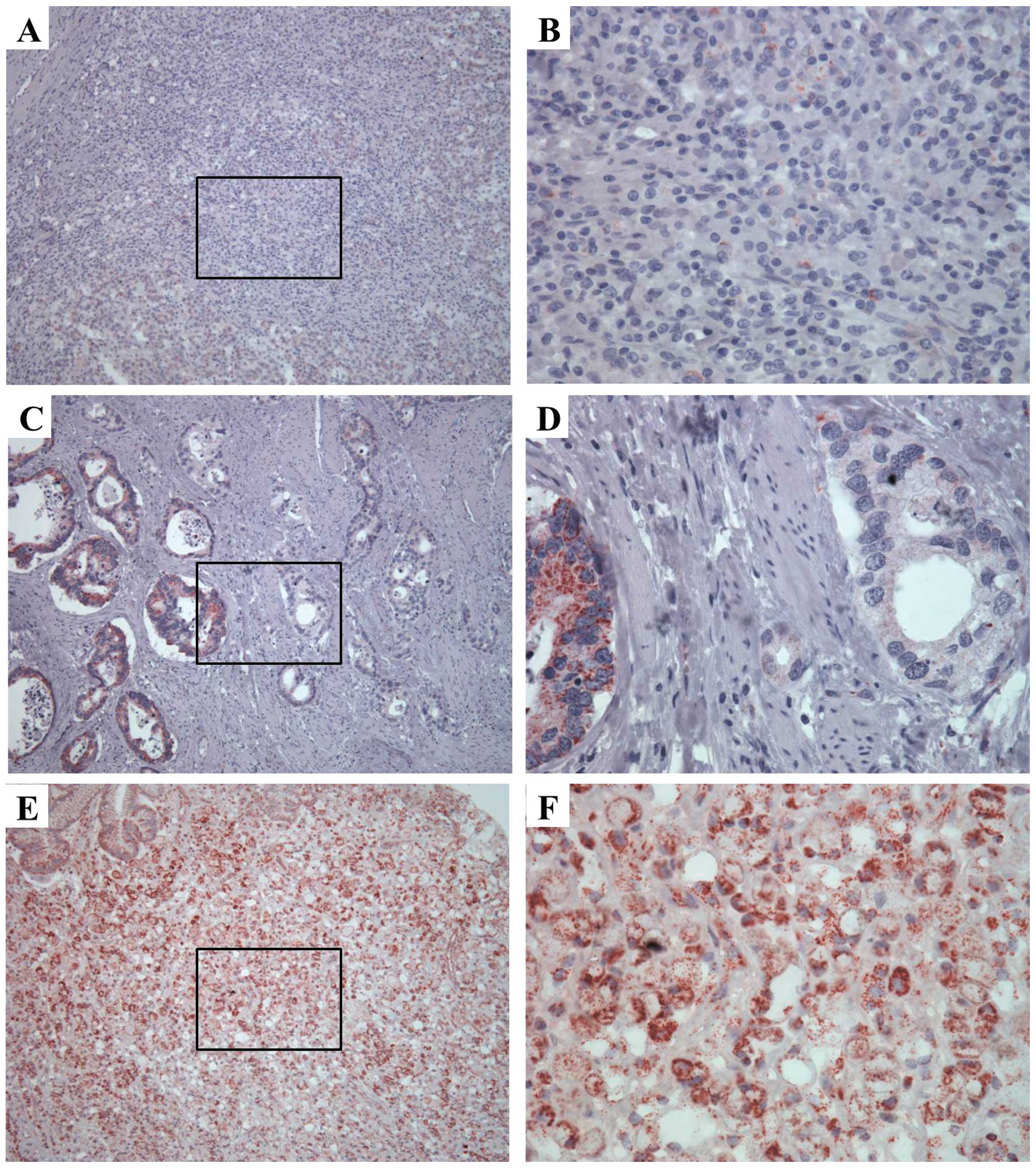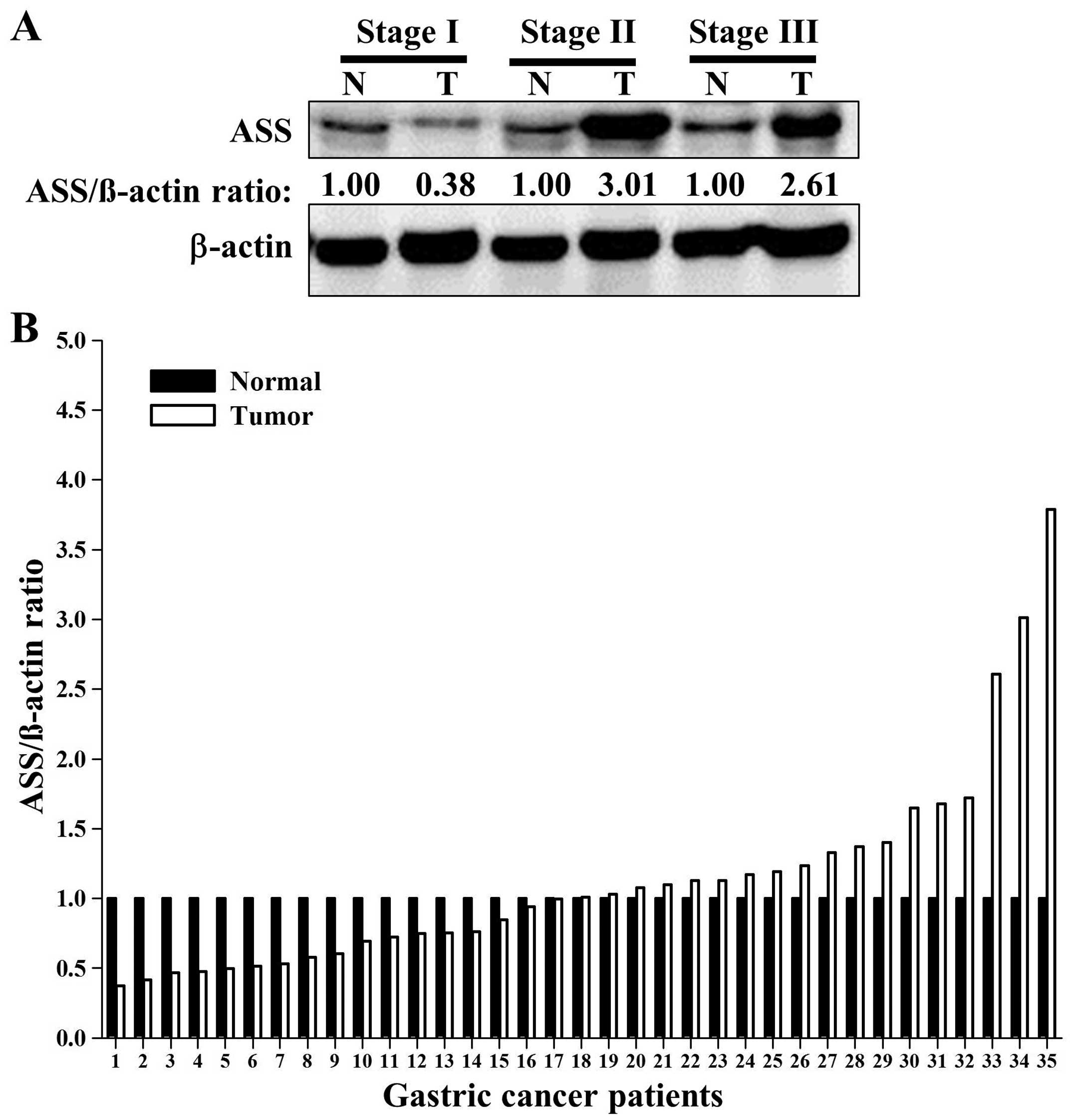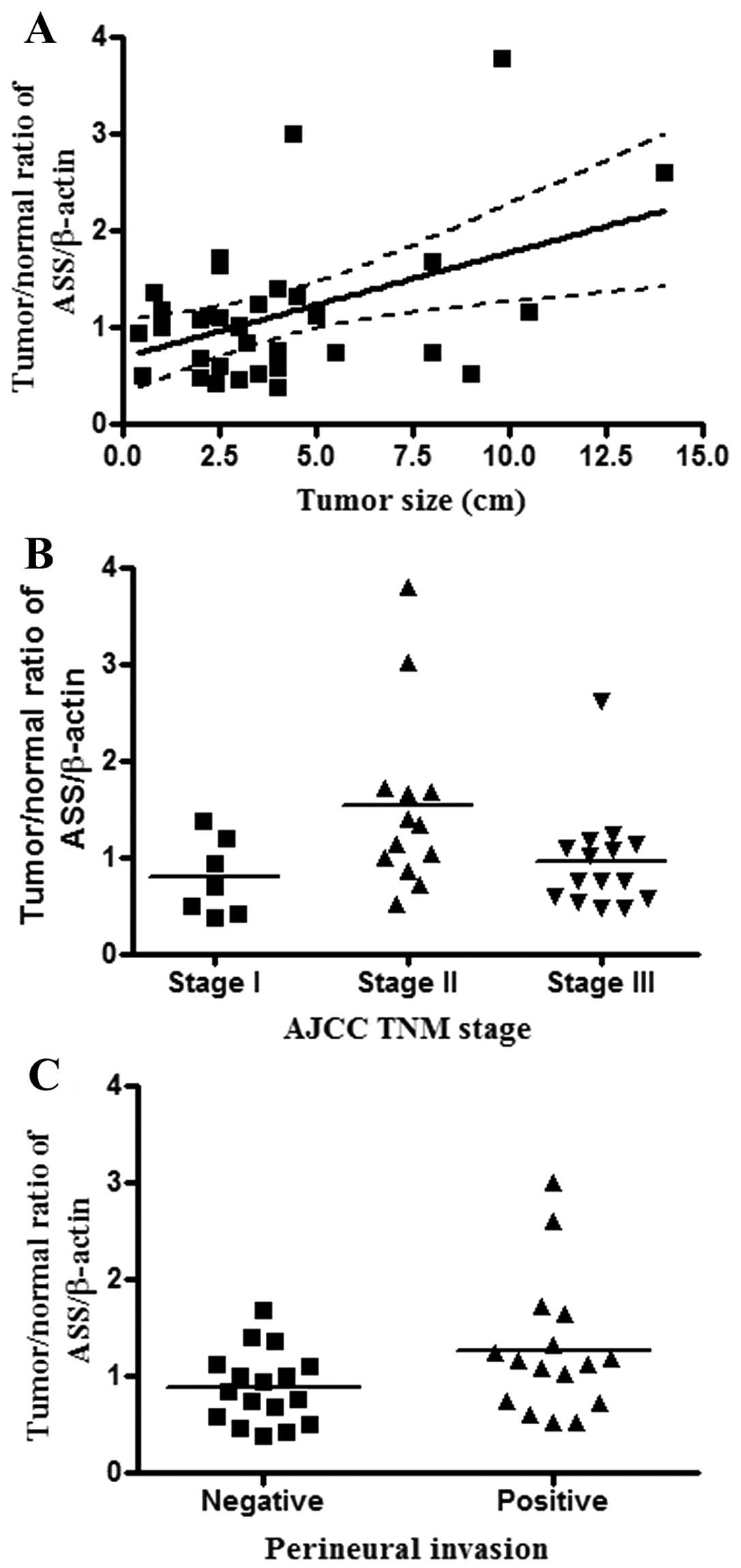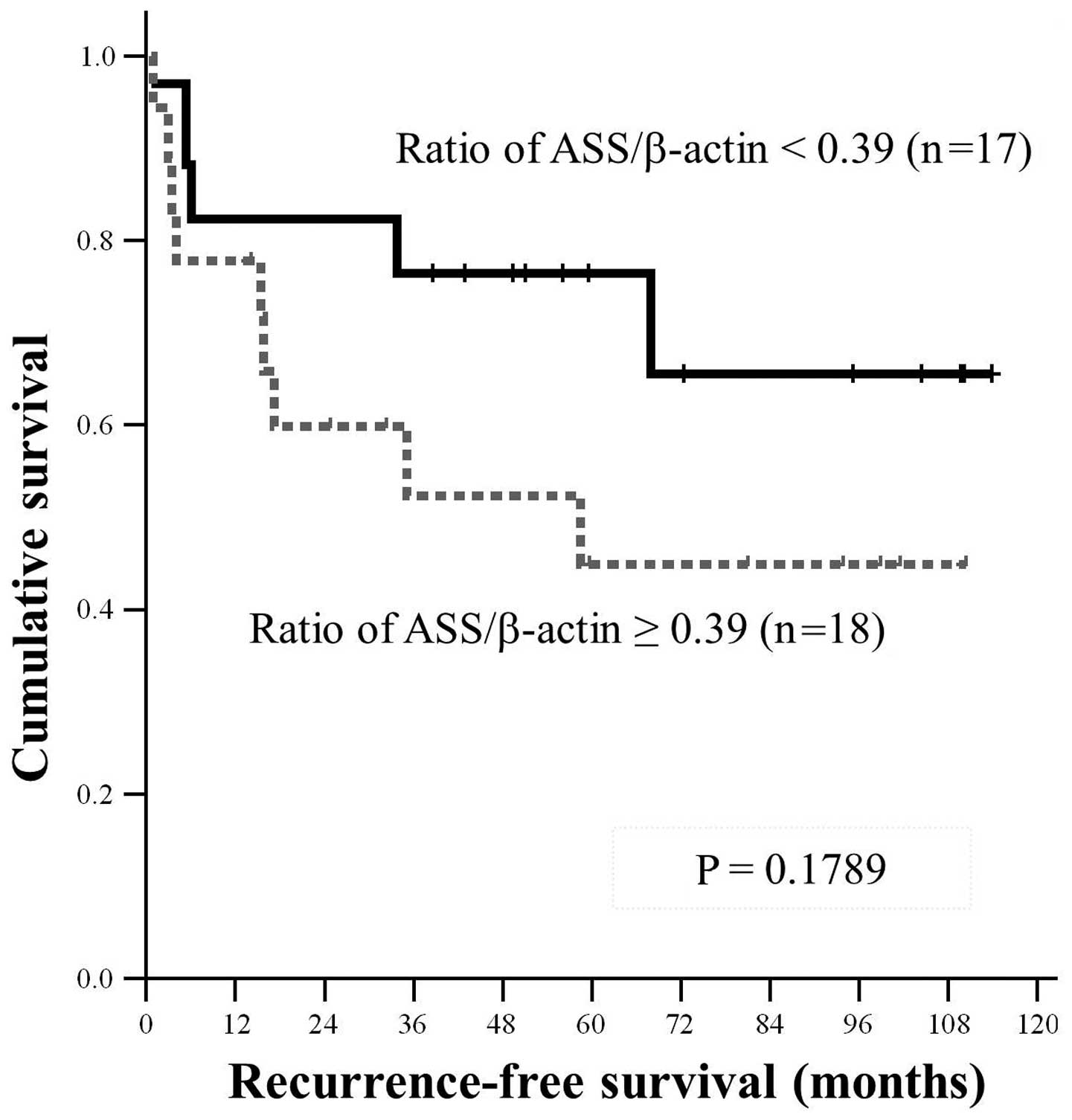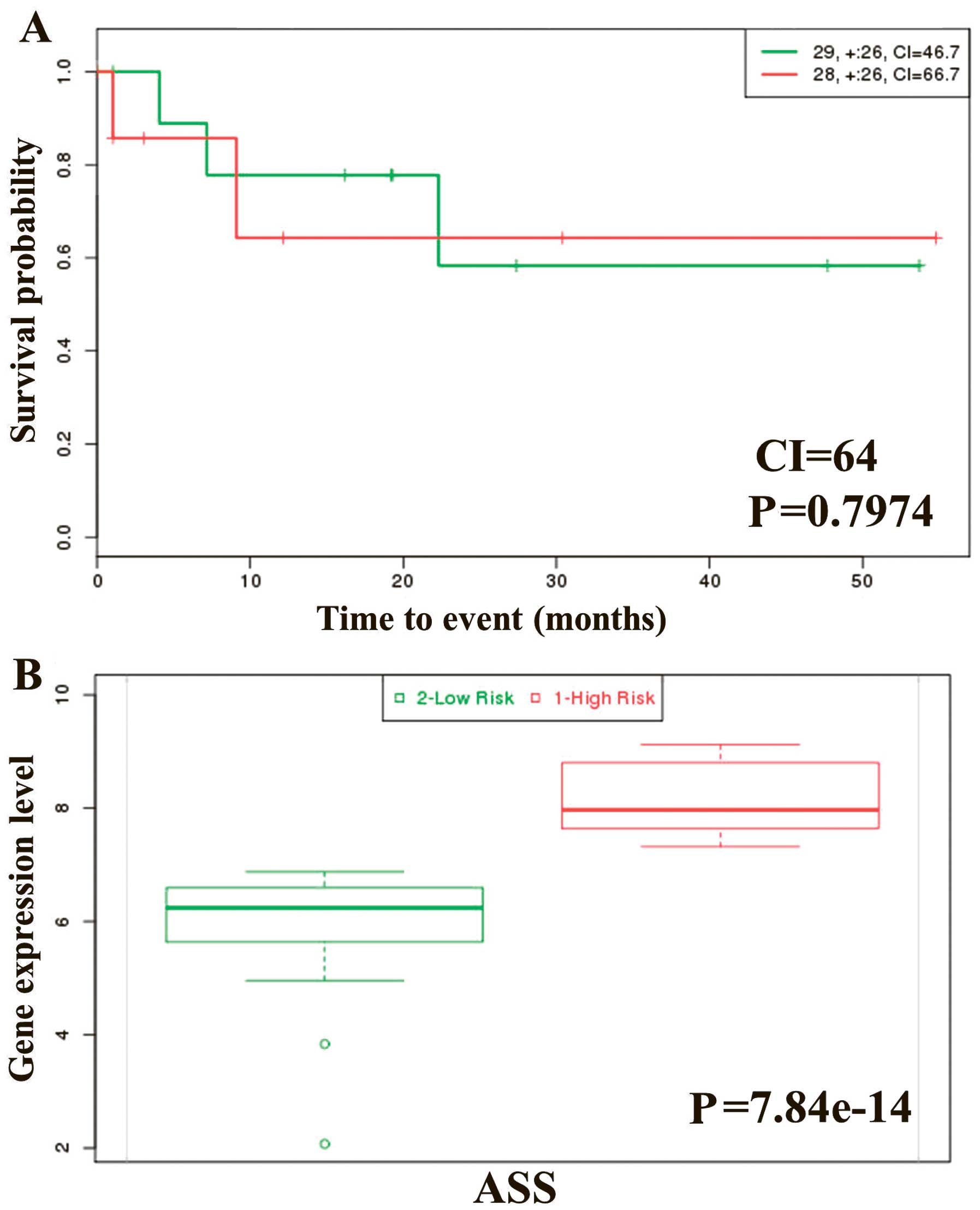|
1
|
Alberts SR, Cervantes A and van de Velde
CJ: Gastric cancer: epidemiology, pathology and treatment. Ann
Oncol. 14(Suppl 2): ii31–ii36. 2003. View Article : Google Scholar : PubMed/NCBI
|
|
2
|
Roder DM: The epidemiology of gastric
cancer. Gastric Cancer. 5(Suppl 1): 5–11. 2002. View Article : Google Scholar
|
|
3
|
Jemal A, Siegel R, Ward E, Murray T, Xu J
and Thun MJ: Cancer statistics, 2007. CA Cancer J Clin. 57:43–66.
2007. View Article : Google Scholar : PubMed/NCBI
|
|
4
|
Yoo CH, Noh SH, Shin DW, Choi SH and Min
JS: Recurrence following curative resection for gastric carcinoma.
Br J Surg. 87:236–242. 2000. View Article : Google Scholar : PubMed/NCBI
|
|
5
|
Sakamoto Y, Ohyama S, Yamamoto J, et al:
Surgical resection of liver metastases of gastric cancer: an
analysis of a 17-year experience with 22 patients. Surgery.
133:507–511. 2003. View Article : Google Scholar : PubMed/NCBI
|
|
6
|
Kroemer G and Pouyssegur J: Tumor cell
metabolism: cancer’s Achilles’ heel. Cancer Cell. 13:472–482. 2008.
View Article : Google Scholar : PubMed/NCBI
|
|
7
|
Pinheiro JPV and Boos J: The best way to
use asparaginase in childhood acute lymphatic leukaemia - still to
be defined? Br J Haematol. 125:117–127. 2004. View Article : Google Scholar : PubMed/NCBI
|
|
8
|
Morris SM Jr: Enzymes of arginine
metabolism. J Nutr. 134:2743S–2747S; discussion 2765S–2767S.
2004.PubMed/NCBI
|
|
9
|
Freytag SO, Beaudet AL, Bock HG and
O’Brien WE: Molecular structure of the human argininosuccinate
synthetase gene: occurrence of alternative mRNA splicing. Mol Cell
Biol. 4:1978–1984. 1984.PubMed/NCBI
|
|
10
|
Ensor CM, Holtsberg FW, Bomalaski JS and
Clark MA: Pegylated arginine deiminase (ADI-SS PEG20,000 mw)
inhibits human melanomas and hepatocellular carcinomas in vitro and
in vivo. Cancer Res. 62:5443–5450. 2002.PubMed/NCBI
|
|
11
|
Feun LG, Marini A, Walker G, et al:
Negative argininosuccinate synthetase expression in melanoma
tumours may predict clinical benefit from arginine-depleting
therapy with pegylated arginine deiminase. Br J Cancer.
106:1481–1485. 2012. View Article : Google Scholar : PubMed/NCBI
|
|
12
|
Bowles TL, Kim R, Galante J, et al:
Pancreatic cancer cell lines deficient in argininosuccinate
synthetase are sensitive to arginine deprivation by arginine
deiminase. Int J Cancer. 123:1950–1955. 2008. View Article : Google Scholar : PubMed/NCBI
|
|
13
|
Delage B, Fennell DA, Nicholson L, et al:
Arginine deprivation and argininosuccinate synthetase expression in
the treatment of cancer. Int J Cancer. 126:2762–2772.
2010.PubMed/NCBI
|
|
14
|
Wu MS, Lin YS, Chang YT, Shun CT, Lin MT
and Lin JT: Gene expression profiling of gastric cancer by
microarray combined with laser capture microdissection. World J
Gastroenterol. 11:7405–7412. 2005.
|
|
15
|
Szlosarek PW, Grimshaw MJ, Wilbanks GD, et
al: Aberrant regulation of argininosuccinate synthetase by
TNF-alpha in human epithelial ovarian cancer. Int J Cancer.
121:6–11. 2007. View Article : Google Scholar : PubMed/NCBI
|
|
16
|
Edge SB and Compton CC: The American Joint
Committee on Cancer: the 7th Edition of the AJCC Cancer Staging
Manual and the Future of TNM. Ann Surg Oncol. 17:1471–1474. 2010.
View Article : Google Scholar : PubMed/NCBI
|
|
17
|
Remmele W and Schicketanz KH:
Immunohistochemical determination of estrogen and progesterone
receptor content in human breast cancer. Computer-assisted image
analysis (QIC score) vs. subjective grading (IRS). Pathol Res
Pract. 189:862–866. 1993. View Article : Google Scholar : PubMed/NCBI
|
|
18
|
Shan YS, Fang JH, Lai MD, et al:
Establishment of an orthotopic transplantable gastric cancer animal
model for studying the immunological effects of new cancer
therapeutic modules. Mol Carcinog. 50:739–750. 2011. View Article : Google Scholar
|
|
19
|
Rhodes DR, Yu J, Shanker K, et al:
ONCOMINE: a cancer microarray database and integrated data-mining
platform. Neoplasia. 6:1–6. 2004. View Article : Google Scholar : PubMed/NCBI
|
|
20
|
Aguirre-Gamboa R, Gomez-Rueda H,
Martinez-Ledesma E, et al: SurvExpress: an online biomarker
validation tool and database for cancer gene expression data using
survival analysis. Plos One. 8:e742502013. View Article : Google Scholar : PubMed/NCBI
|
|
21
|
Cho JY, Lim JY, Cheong JH, et al: Gene
expression signature-based prognostic risk score in gastric cancer.
Clin Cancer Res. 17:1850–1857. 2011. View Article : Google Scholar : PubMed/NCBI
|
|
22
|
D’Errico M, de Rinaldis E, Blasi MF, et
al: Genome-wide expression profile of sporadic gastric cancers with
microsatellite instability. Eur J Cancer. 45:461–469. 2009.
View Article : Google Scholar
|
|
23
|
Förster S, Gretschel S, Jons T, Yashiro M
and Kemmner W: THBS4, a novel stromal molecule of diffuse-type
gastric adenocarcinomas, identified by transcriptome-wide
expression profiling. Mod Pathol. 24:1390–1403. 2011. View Article : Google Scholar : PubMed/NCBI
|
|
24
|
Wang J, Yang YH, Wang AQ, et al:
Immunohistochemical detection of the Raf kinase inhibitor protein
in nonneoplastic gastric tissue and gastric cancer tissue. Med
Oncol. 27:219–223. 2010. View Article : Google Scholar
|
|
25
|
Deng NT, Goh LK, Wang HN, et al: A
comprehensive survey of genomic alterations in gastric cancer
reveals systematic patterns of molecular exclusivity and
co-occurrence among distinct therapeutic targets. Gut. 61:673–684.
2012. View Article : Google Scholar : PubMed/NCBI
|
|
26
|
Chen X, Leung SY, Yuen ST, et al:
Variation in gene expression patterns in human gastric cancers. Mol
Biol Cell. 14:3208–3215. 2003. View Article : Google Scholar : PubMed/NCBI
|
|
27
|
Ooi CH, Ivanova T, Wu J, et al: Oncogenic
pathway combinations predict clinical prognosis in gastric cancer.
PLoS Genet. 5:e10006762009. View Article : Google Scholar : PubMed/NCBI
|
|
28
|
Kobayashi E, Masuda M, Nakayama R, et al:
Reduced argininosuccinate synthetase is a predictive biomarker for
the development of pulmonary metastasis in patients with
osteosarcoma. Mol Cancer Ther. 9:535–544. 2010. View Article : Google Scholar : PubMed/NCBI
|
|
29
|
Orditura M, Galizia G, Sforza V, et al:
Treatment of gastric cancer. World J Gastroenterol. 20:1635–1649.
2014. View Article : Google Scholar : PubMed/NCBI
|
|
30
|
Huang JQ, Sridhar S, Chen Y and Hunt RH:
Meta-analysis of the relationship between Helicobacter pylori
seropositivity and gastric cancer. Gastroenterology. 114:1169–1179.
1998. View Article : Google Scholar : PubMed/NCBI
|
|
31
|
Cao MD, George TJ, Prima V, Nelson D and
Svetlov S: Argininosuccinate synthase as a novel biomarker for
inflammatory conditions. Biomarkers. 18:242–249. 2013. View Article : Google Scholar : PubMed/NCBI
|
|
32
|
Conteduca V, Sansonno D, Lauletta G, Russi
S, Ingravallo G and Dammacco F: H. pylori infection and gastric
cancer: State of the art (Review). Int J Oncol. 42:5–18. 2013.
|
|
33
|
Bornschein J, Kandulski A, Selgrad M and
Malfertheiner P: From gastric inflammation to gastric cancer. Dig
Dis. 28:609–614. 2010. View Article : Google Scholar : PubMed/NCBI
|
|
34
|
Gonzalez GG and Byus CV: Effect of dietary
arginine restriction upon ornithine and polyamine metabolism during
two-stage epidermal carcinogenesis in the mouse. Cancer Res.
51:2932–2939. 1991.PubMed/NCBI
|
|
35
|
Feun L, You M, Wu CJ, et al: Arginine
deprivation as a targeted therapy for cancer. Curr Pharm Des.
14:1049–1057. 2008. View Article : Google Scholar : PubMed/NCBI
|
|
36
|
Izzo F, Marra P, Beneduce G, et al:
Pegylated arginine deiminase treatment of patients with
unresectable hepatocellular carcinoma: Results from phase I/II
studies. J Clin Oncol. 22:1815–1822. 2004. View Article : Google Scholar : PubMed/NCBI
|
|
37
|
Ascierto PA, Scala S, Castello G, et al:
Pegylated arginine deiminase treatment of patients with metastatic
melanoma: results from phase I and II studies. J Clin Oncol.
23:7660–7668. 2005. View Article : Google Scholar : PubMed/NCBI
|















